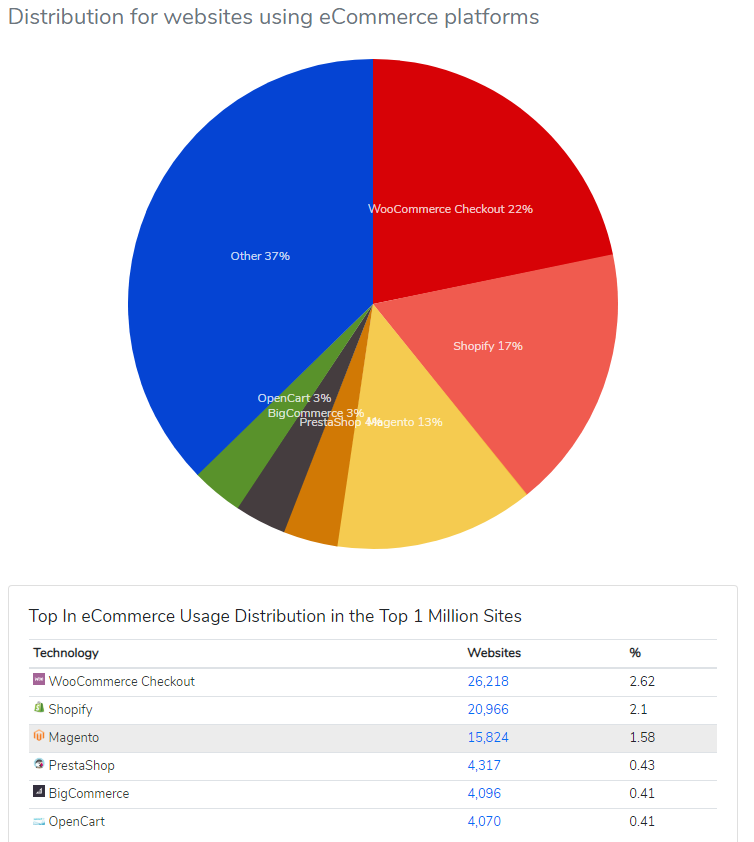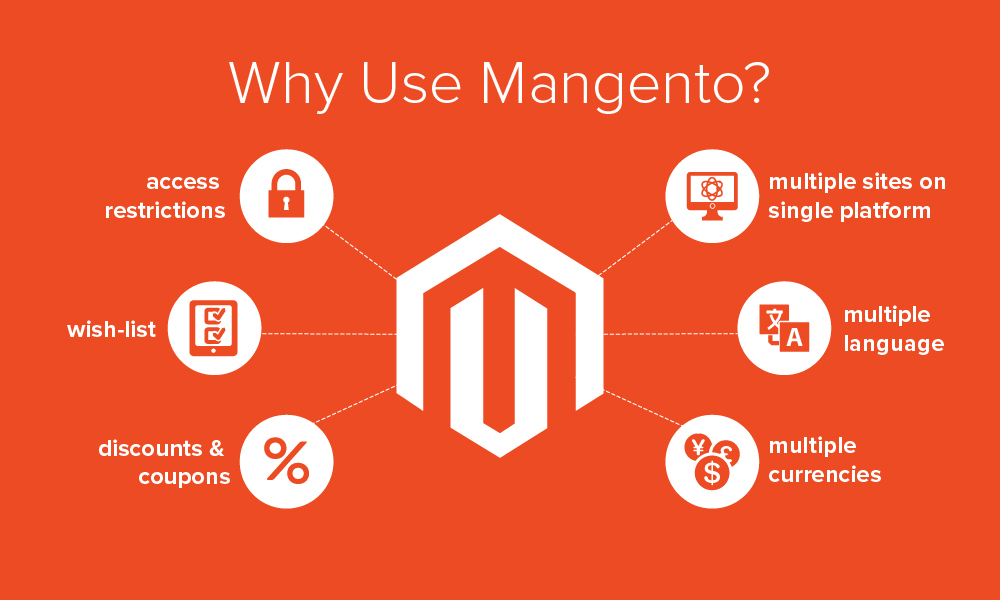Running a brick and mortar shop is challenging enough; operating a physical store requires in-person customer interaction, staff management, security expenses, online store maintenance, and vulnerability to sales loss during a pandemic. Which gives you all the more reasons to start an ecommerce online store.
Expand profits by taking your brick-and-mortar business online and targeting local customers. Setting up and managing an online store is cost-effective; reaching your target customers is easy; running marketing campaigns, accepting payments and managing your inventory is more effortless than it was for running a physical store.
In this article you will learn how to set up your own ecommerce store and our suggestions on the top ecommerce platforms and technologies to choose. I will explain in detail the steps to follow while taking your business online.
How To Start Your eCommerce Business?
We have written this blog assuming that you have a brick-and-mortar store and are well aware of your target customers. This blog help you to take your business online using industry best practices that many successful business owners followed.
- Step 1: Determine the products you want to sell
- Step 2: Run a competitor research to know what you’re up against
- Step 3: Register a domain and choose an ecommerce development platform
- Step 4: Upload and publish the products you want to sell online
- Step 5: Create a maintenance plan for your online store
Determine the Products You Want to Sell Online
If you have a brick and mortar store you are already clear about what you will be selling online on your ecommerce store. But ecommerce is a vast space where your competitors will be selling a lot more variations of the products you are selling. Moreover you have to look into the possibility that selling the products you want to sell online is a viable option?
Never miss an update from us. Join 10,000+ marketers and leaders.
For example: if you sell low-cost items, you have to attract customers who will purchase in bulk so that you can reduce the shipping charges; otherwise it will become an unprofitable business.
Another example: if you want to sell ceramic items, which are expensive and fragile, you will have to find logistic partners who can guarantee secure shipping of your products without mishandling the items.
Which is why it becomes essential that you determine the products you want to sell online and ensure that you can fulfill your customers’ orders without fail.
Run a Competitor Research to Know What You’re Up Against
When you have already figured-out the products you will be selling online, the next step would be to run a thorough competitor analysis and find out ways they run their online store.
Starting from your local businesses to global stores, you can derive a ton of insights into how they run their online business.
Here are a few pointers to look into when researching your competitors:
- What products they are selling online
- Learn about their shipping partners and how they fulfill their orders
- Payment gateways they employ to accept payments
- Technologies your competitors are using to run their store
- Figure-out their marketing strategies and ways they engage with their competitors
- Most importantly, find out your unique selling point and how you can compete in the market to win
You may already know how to run a brick-and-mortar store; however, running an ecommerce store is a completely different business model. Researching your competitors’ business will guide you into figuring out the right approach you can follow to make your ecommerce business a success.
Register a Domain and Choose an eCommerce Development Platform
At this stage you need a hosting provider who can host your website as well as store and manage your online store data. There are over 300,000 hosting providers in the world to choose from but there are some hosting services who are ecommerce friendly.
Here are top 5 ecommerce hosting providers:
- GoDaddy Hosting
- DreamHost
- SiteGround
- Hostinger
- InMotion
- Bluehost
Top Factors to consider when choosing your hosting provider
-
Scalability
Ensure that your ecommerce hosting provider offers a higher scalability option so that you can keep your store up and running 24/7 with little to no downtime. You don’t want your store to crash during peak shopping seasons!
-
Data security
On top of server scalability you will also need rock-solid security on your store. You will be handling thousands if not millions of customer data and payment details which you need to ensure never gets stolen. Opt for PCI compliant hosting providers who follow industry best practices to store and process customer credit cards data.
-
Faster page loading
eCommerce stores typically have a heavy font-end where a single page contains hundreds of images and integrated apps that need to load faster. This makes it essential for ecommerce stores to opt for hosting providers that can facilitate faster page loading.
The next step is to hire the right ecommerce development company, who can guide you to choose the best ecommerce platform for your online store.
Are you looking for a eCommerce developer
We suggest opting for CMS (content management systems) platforms which enables store owners to create their online store without having any coding skills, they can use their content management systems to upload product items and publish their store in 24 hours, literally!
Here are a few eCommerce platforms to choose from:
- BigCommerce
- WooCommerce
- Drupal
- Joomla
- Magneto
- Shopify
- Wix
Upload and Publish the Products You Want to Sell Online
After selecting the ecommerce development platform for your online store, you can upload and publish your products with ease using the content management system.
At this phase you will need to opt for a professional eCommerce development company who can upload, populate and publish your products to make your ecommerce site live.
An ecommerce development agency can prepare upload files with all product details which can be employed to bulk upload products.
Create a Maintenance Plan for Your Online Store
To keep your online store running smoothly, create a maintenance plan now that it’s up and running. Stay current with market trends to thrive in eCommerce.
A maintenance plan for your online store is to ensure that you stay ahead in the market and your customers derive a better shopping experience:
The benefit of site maintenance includes:
- Update store security features to keep it secure from trespassers
- Give your customers a better user experience
- Update store UI and UX to give your customers a better shopping experience.
- Make your online store search engine friendly
Top ways to maintain your eCommerce site:
- Update CMS version and themes
- Update site plugins
- Back up your store regularly
- Monitor store analytics to find ways to improve customer experience
- Maintain site security
- Monitor server performance to prevent server downtime
- Optimize website speed
- Update and optimize store contents
- Update product SKUs and descriptions
- Keep and follow a maintenance schedule
Wrapping Up!
Setting up an online store is basically the same everywhere in the world. You have to stock-up your inventory, buy a domain name, choose a hosting provider, choose an ecommerce platform, upload product details and publish.
To accomplish all the above actions efficiently you should hire an eCommerce development agency who can set-it-up for you at a fraction of the cost.
If you can do all that as well as manage to sell your products, your ecommerce store business will take care of its own; you only have to take care of maintaining the site and implementing marketing strategies to keep your store going.





